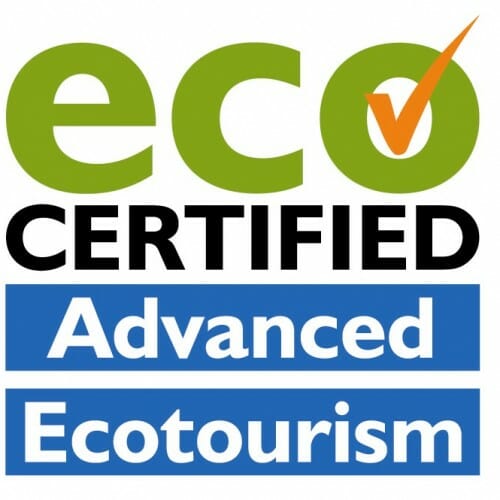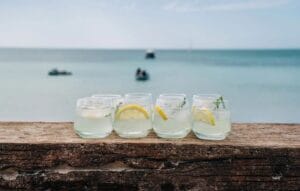Sustainability
Ecotourism is ecologically sustainable tourism

Ecotourism
The definition of ecotourism adopted by Ecotourism Australia is:
“Ecotourism is ecologically sustainable tourism with a primary focus on experiencing natural areas that fosters environmental and cultural understanding, appreciation and conservation.”
Advanced Ecotourism Certification
Dirk Hartog Island achieved Advanced Ecotourism certification assuring travellers that we are committed to sustainable and best practice tourism.
Ecotourism Australia – Australia’s leading and most innovative ecotourism products that operate with minimal impact on the environment and provide opportunities to learn about the environment with operators who are committed to achieving best practice, using resources wisely, contributing to conserving the environment and helping local communities.
Power
92% of the island’s power supply is produced from a hybrid Solar Array & Wind powered generators. A backup DSL generator is required during the winter months when the days are shorter and the winds are light.
- Since installation the system has reduced generator run time from 18hrs per day to averaging 1.8hrs per day.
- Saving 36,000 litres of diesel per year
Water
The accommodation is supplied water via a solar pump and windmill located 7km away. The water is an old well developed during the pastoral period. The water is limited and used sparingly. Drinking water is desalinated from the well water with any reject water used on gardens.
Recycling & Waste
- Dirk Hartog Island Eco Lodge has a glass crusher that reduces glass to the size of sand. This is then stored and then used in cement during any future developments.
- Cans & tins are crushed using the old wool press and then removed from the island to mainland re-cycling depots in Geraldton.
Education
“The Dirk Hartog Island National Park Return to 1616 Ecological Restoration project is managed by the Department of Biodiversity, Conservation and Attractions (DBCA). This project is aimed at recovering the natural values of the island – including the establishment of a safe refuge for endangered animals. DBCA has eradicated sheep, goats and feral cats – making it the largest island in the world to be feral cat free. With their removal, 13 native animal species that once inhabited the island will be returned between 2018 and 2030.
Visitors to the island are educated on the project and encouraged to spread the word on the milestones being achieved.
Contribution
Dirk Hartog Island Eco Lodge supports the project via discounted accommodation and meals.
Dirk Hartog Island also supports the project via transportation of DBCA vehicles, fuel and supplies ex Denham and Steep Point on our purpose built landing barge.

